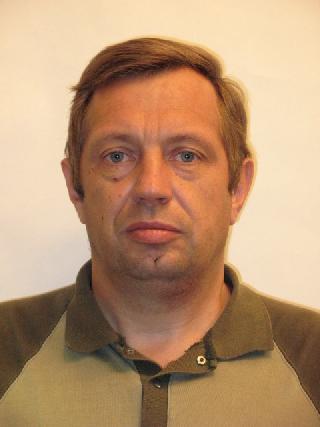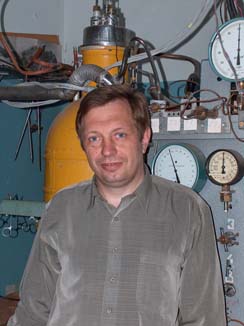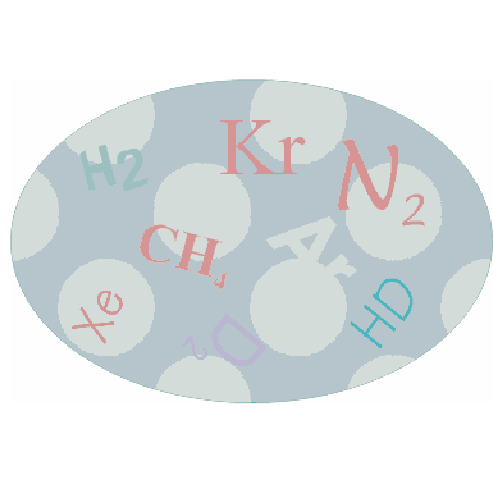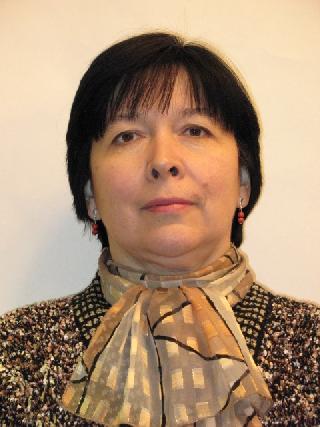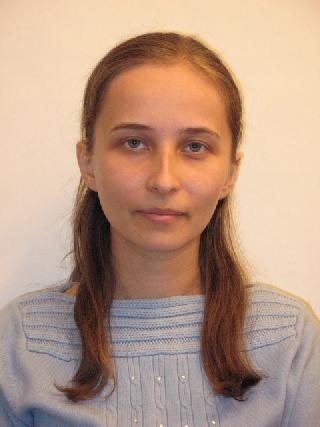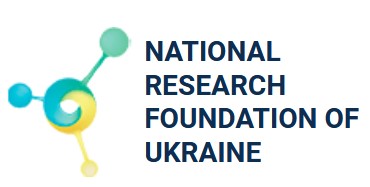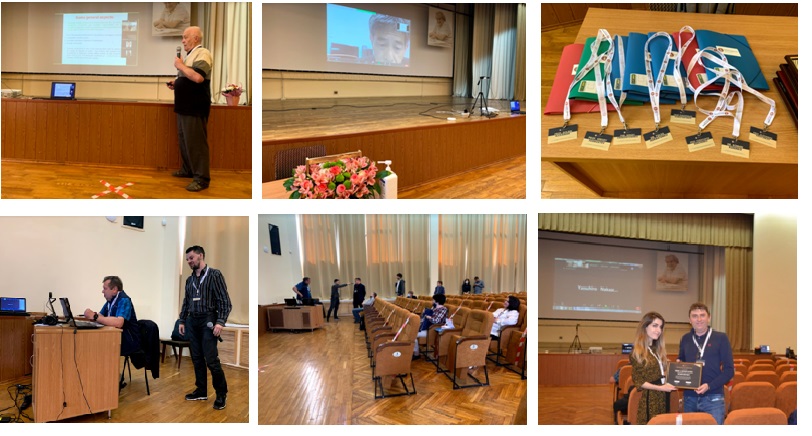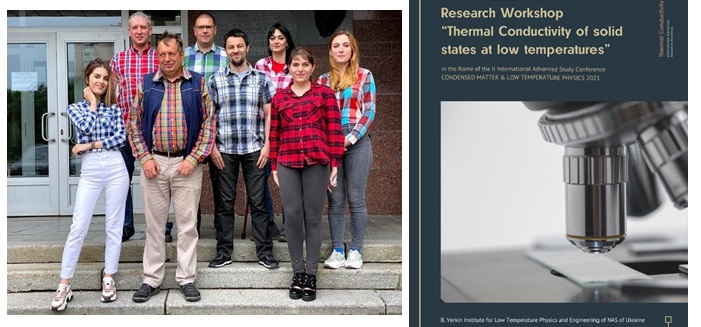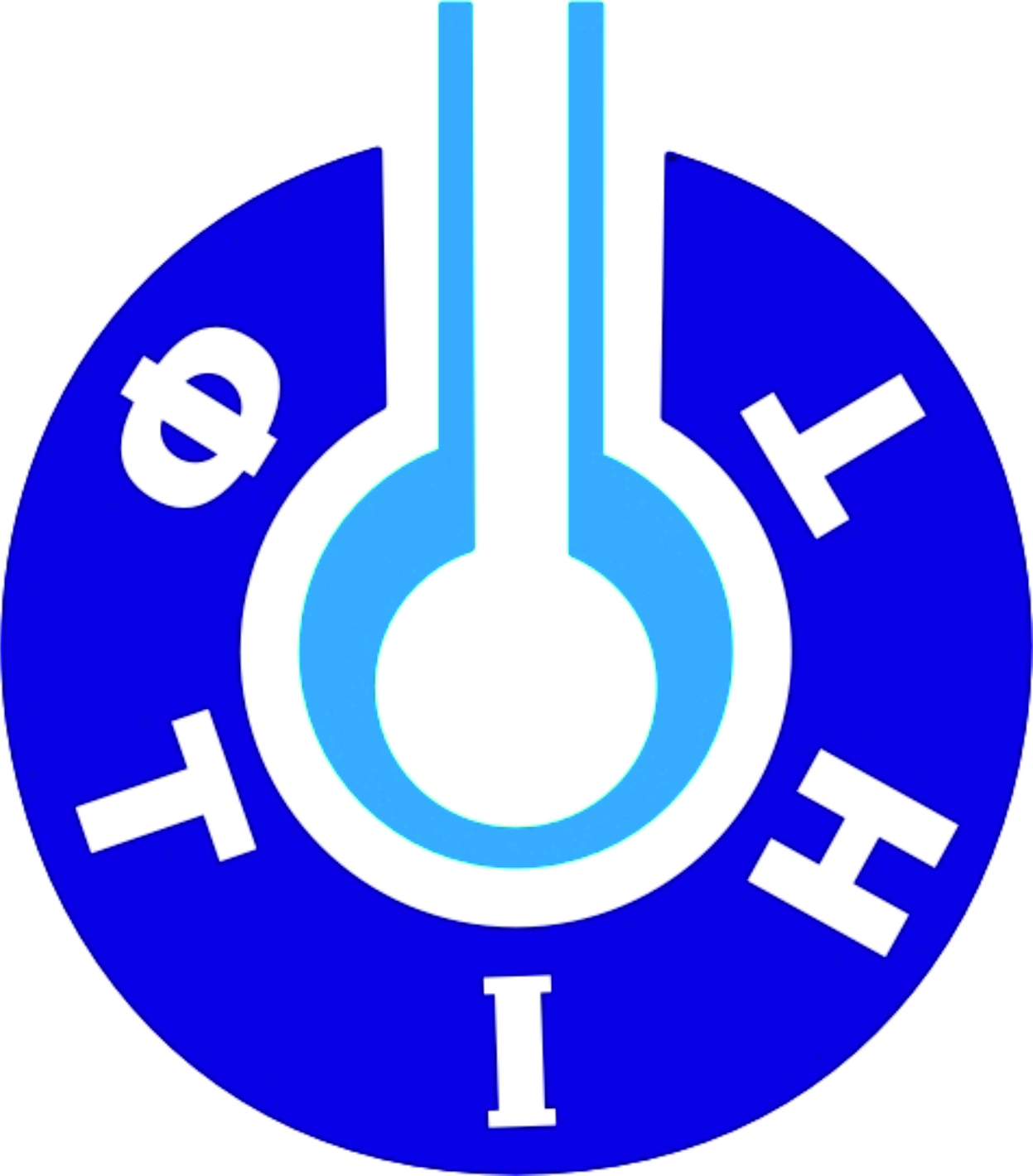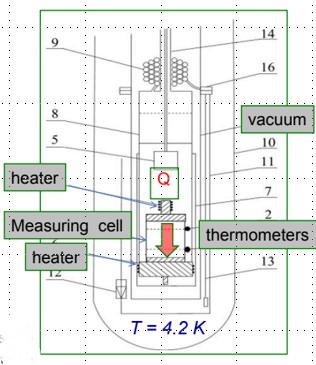
Eperimental methods for investigating isobaric thermal conductivity on unique experimental setup
in the B. Verkin ILTPE of NASU allows precision measurements of the isobaric thermal conductivity.
Schematic of the low-temperature section of the setup for measuring the thermal conductivity of samples
using the stationary heat flow method is shown in Fig. above [Instrum Exp Tech 48, 417–421 (2005)].
Universal behavior of low-temperature heat capacity of acrylonitrile-butadiene-styrene thermoplastic
polymer and its composite with graphene oxide
The article "Universal behavior of low-temperature heat capacity of acrylonitrile-butadiene-styrene thermoplastic
polymer and its composite with graphene oxide" [Low Temp. Phys. 49(5), 593 (2023)]
was awarded on the Final scientific conference of the B.I. Verkin Institute of Low Temperature Physics and Engineering,
NAS of Ukraine in 2024 in section of the Scientific Council "Molecular Physics, Physics of Cryogenic Liquids and Crystals".
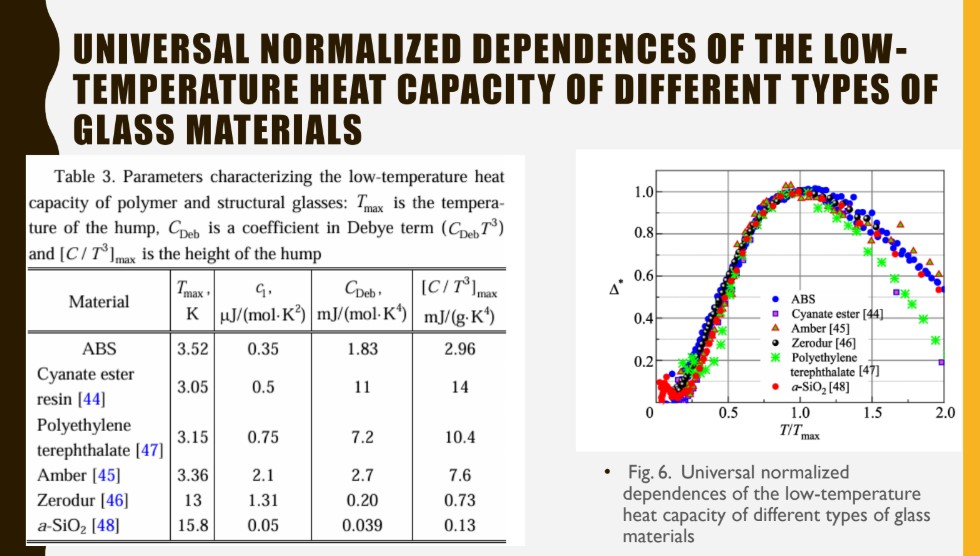
The group maintains a continuous scientific information exchange with researchers
in different countries in the frame of the regular International seminars
"Heat Capacity and Thermal Conductivity of Solids at Low Temperatures".
Prof. Krivchikov A.I. have long history of active
cooperation with the co-authors from Institute of Low Temperature and Structure Research
PAS (Wroclaw, Poland), Universidad Autónoma de Madrid, Madrid (Spain), Department of Chemistry & Research Centre
for Thermal and Entropic Science, Graduate School of Science, Osaka University, Osaka (Japan),
Universitat Politecnica de Catalunya, Barcelona (Spain).
The study of thermal properties and heat transfer mechanisms in molecular
substances with complex crystal structures is an important area of materials science,
which is necessary for development astronautics, modern energy-saving technologies
and many applied technical problems, such as the creation of new thermal insulation and
thermoelectric materials. Experimental studies of the thermal properties of molecular
solids can be used in the development of a theory that connects the features of the
thermal conductivity of such crystals with their structure to predict other thermal
properties for these crystals, and expand existing ideas about the mechanisms of heat
transfer in molecular crystals. Also, the results of the study of thermal conductivity of
polymorphic modifications of various molecular crystals are useful in the development of
new stable forms of pharmaceutical. The information about the mechanisms of heat
transfer also is useful in the creation of elements for thermoelectric systems.
In particular, it can be used to create materials with high electrical conductivity and
low thermal conductivity, since a controlled change in the thermal conductivity of a
material is an important component for improving thermoelectric characteristics and
maintaining a high power factor in thermoelectric energy conversion, which is important
in the energy, chemical, and pharmaceutical industries.
.
Prof. Krivchikov A.I. and Prof. Jeżowski A. published the Chapter 3. "Thermal Conductivity of
Glasses and Disordered Crystals" in book "Low-temperature Thermal And Vibrational
Properties Of Disordered Solids: A Half-century Of Universal" Anomalies" Of Glasses, 2022, 69
Prof Krivchikov A.I and Dr. Korolyuk O.A. in article "Empirical universal approach to describing the
thermal conductivity of amorphous polymers: Effects of pressure, radiation and the Meyer–Neldel rule"
propose and validate a universal temperature-dependent model for characterizing the
thermal conductivity of amorphous polymers over a wide temperature range.
Importantly, this model proves effective not only for pristine amorphous polymers but
also for polymers subjected to external influences. They investigate the
temperature-dependent thermal conductivity of amorphous polymer materials under
various external conditions, such as hydrostatic pressure, radiation exposure, and the
incorporation of fillers. Analysis reveals novel insights into the dual-channel heat
transfer mechanisms within amorphous polymers. Specifically,they observe a linear
relationship between the logarithm of the “coherence” conductivity pre-factor and
the characteristic energy, consistent with the Meyer–Neldel rule governing thermal
conductivity. This research advances understanding of thermal transport in amorphous
polymers and underscores the applicability of the proposed universal model in describing
complex thermal behavior across different conditions [Low Temp. Phys. 50, 328–341 (2024)].
Prof. Krivchikov A.I. in co-work with Prof. Strzhemechny M.O. were the Laureate of Prize of the Polish Academy of
Sciences and the National Academy of Sciences of Ukraine in 2019 for the work "New mechanisms of thermal conductivity of
non-conducting solids".
Dr. Horbatenko Yu.V. has scholarship of the National Academy of Sciences of Ukraine (2019-2021) and the
scholarship of the President of Ukraine (2022-2024, 2024-2025).
